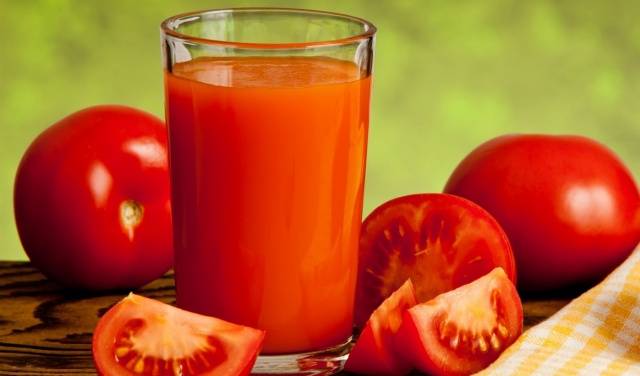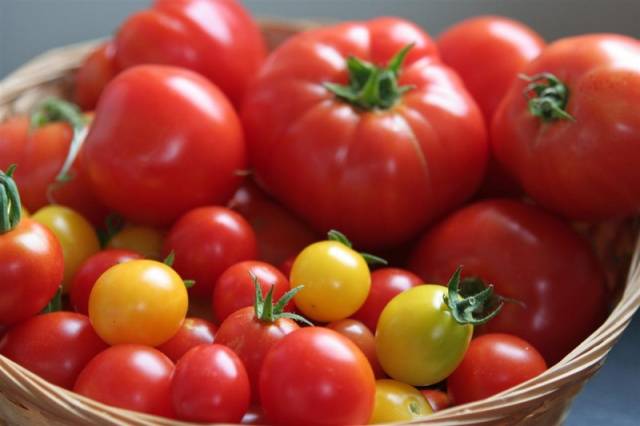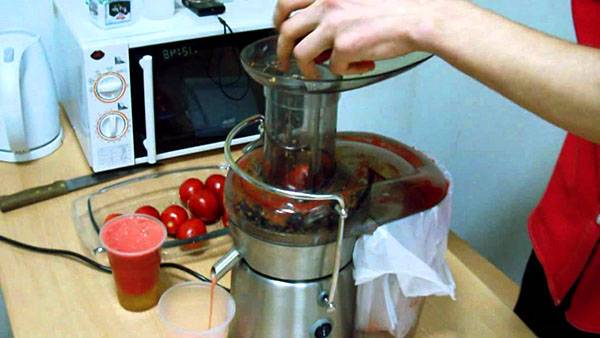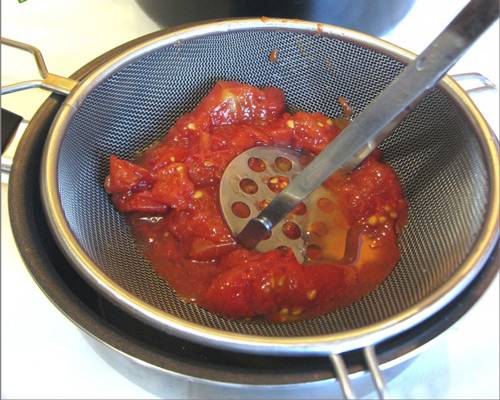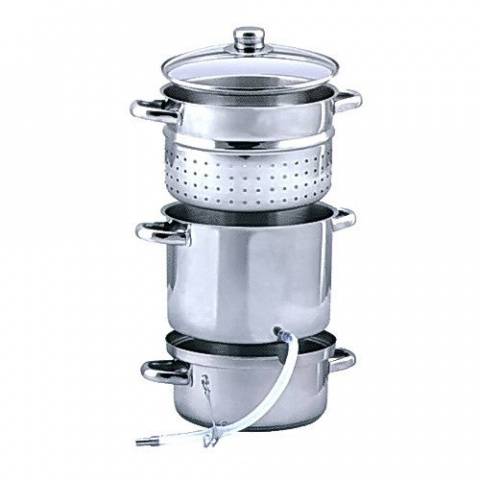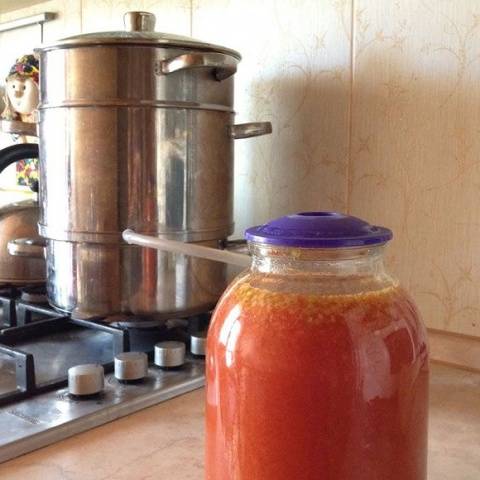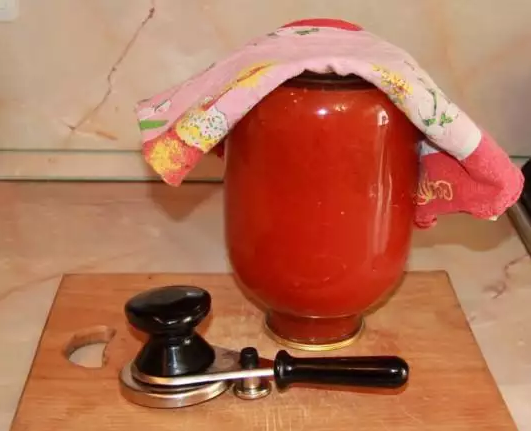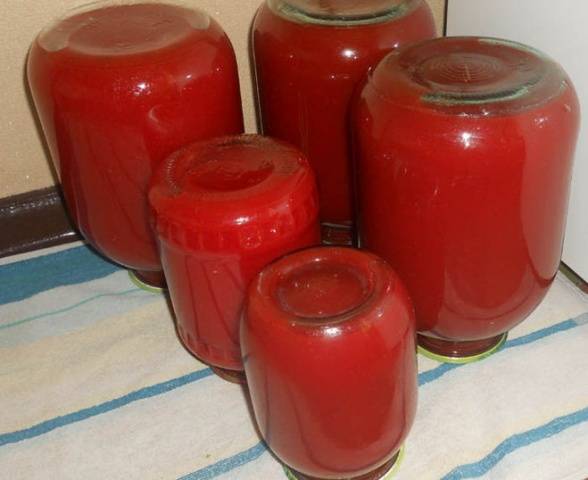Content
Everyone who has ever grown tomatoes in their summer cottage sooner or later asks the question: "What to do with the remaining harvest?" After all, only the very first tomatoes are instantly eaten, the rest can simply disappear if they are not used for food. Most of the remaining crop, of course, goes to spinning. But only beautiful tomatoes of the correct shape are closed in jars, and unsightly fruits are left to await their fate. And then many people remember tomato juice - the most favorite juice among our compatriots. How to make tomato juice at home will be discussed below.
The benefits of tomato juice
Tomato juice is not just a tasty drink. Its pleasant taste is harmoniously combined with a huge amount of beneficial vitamins and minerals. And cooking from self-grown fruits will only add to its benefits. But regardless of whether the fruits were purchased or their own "from the garden", tomato juice will contain:
- vitamins A, B, C, E, H and group P;
- organic acids;
- carbohydrates;
- fiber;
- minerals;
- antioxidants.
Tomato juice is the undisputed leader in the content of vitamins A and C. In fresh tomatoes and in juice from them, the concentration of these vitamins is higher than in carrots and grapefruit. In addition, it is the lowest calorie juice. One glass of this delicious drink contains only 36 - 48 calories, which makes it an excellent tool in the fight against extra pounds.
But the main benefit of this drink lies in the lycopene it contains, a natural antioxidant. This substance is able to actively resist the emergence of cancer cells.
As a remedy, juice made from tomatoes will help with:
- obesity;
- slagging of the body;
- depression or nervous tension;
- diseases of the heart and blood vessels;
- diabetes mellitus and other diseases.
All packaged juices not only do not have useful properties, but can also be harmful. Therefore, it is recommended to exclude them from the diet or consume them in small quantities.
Making tomato juice at home
Many people find it difficult to make homemade tomato juice. In fact, it is no more difficult than making juice from any other vegetable or fruit. It doesn't require any special skills or culinary talent. There are many ways to make homemade tomato juice. We will tell you about the most common ones.
How to choose tomatoes for juice
Of course, letting beautiful ripe tomatoes on juice, especially when they were grown on their own, is sacrilege. Therefore, for tomato juice, you can choose worse fruits.
Tomatoes intended for canning will not go for him: they have a hard skin and dense flesh. Tomatoes should be chosen only of those varieties in which the pulp is juicy and fleshy.
Do not throw away slightly spoiled tomatoes. Dented, slightly burnt tomatoes are unable to negatively affect the taste of the finished product. But before using such fruits, all "doubtful" places should be cut out and thrown away.
The number of tomatoes is also important. So, to fill one glass, you only need 2 medium tomatoes, about 200 grams each. If more juice is needed, the proportions should be increased, for example, 10 kilograms of tomatoes at the output can give about 8.5 liters of juice.
Tomato juice at home through a juicer
This method is perhaps the most popular and fastest. But it has one significant drawback - it is a large amount of waste.
It takes a few minutes to prepare delicious tomato juice using a juicer:
- The tomatoes are washed with warm water.
- Cut into 2 or 4 pieces, depending on the size of the juicer neck. At this stage, the stalk of the tomato is also removed.
- The resulting workpieces are passed through a juicer.
- Salt and sugar are added to the resulting finished drink to taste.
A twig of this herbaceous plant can be dipped in juice or chopped in a blender and mixed with juice.
Making tomato juice without a juicer at home
Making tomato juice at home without a juicer will take a little tinkering. After all, what the juicer did, you will have to do it yourself. But in this way, we can avoid a lot of waste and get a thick tasty tomato juice.
The recipe for homemade tomato juice without a juicer is simple:
- The tomatoes are rinsed with lukewarm water. Cut into medium sized pieces. Place in a large saucepan or saucepan and simmer for about an hour on average. The exact cooking time depends on the density of the selected tomatoes. The main criterion for stopping cooking is the soft, boiled consistency of the tomatoes.
Important! When preparing tomato juice without a juicer, there is one rule: during the cooking process, in no case should you add water. Wait for the tomatoes to give liquid. In this case, you need to stir them periodically.When the tomatoes have acquired the required consistency, they are rubbed hot through a sieve.
- Salt and sugar are added to the finished filtered drink to taste.
Before preparing a drink without a juicer, we recommend watching the video:
Tomato juice without a juicer turns out to be very thick, almost like a puree. Therefore, it is most often diluted with water before use. But, despite this, many note that the drink according to this recipe is much tastier than the drink prepared through a juicer. In addition, such a tomato juice recipe not only preserves nutrients, but also increases the concentration of lycopene, a natural anti-cancer antioxidant.
Cooking tomato juice in a juicer
Before telling how to prepare tomato juice using a juicer, we will tell you what kind of unit it is. At first glance, the juicer looks like several pots inserted into each other. But in fact, its structure is a little more intricate and includes four elements:
- Capacity for water.
- The container where the finished drink is collected.
- Colander for fruits and vegetables.
- Cap.
The principle of operation of the juicer is based on the steam effect on vegetables. The steam that rises from a heated container of water causes vegetables or fruits to secrete juice, which flows into the juice collector. The finished product is discharged from the juice collector through a special tube.
Today juicers are made of only two materials - stainless steel and aluminum. If possible, then preference should be given to a stainless steel juicer. It has increased resistance to mechanical stress, is not affected by aggressive environments and is suitable for any type of hob.
In order to prepare a drink in a juicer, you must follow a simple algorithm of actions:
- The tomatoes are washed and cut into small pieces.
- Chopped tomatoes are stacked in a fruit and vegetable colander.
- Water is poured into the lower container of the juicer. Typically, there is a mark on the inside of the container to indicate the required water level.
- The container with water is placed on the stove, heated to high fire. The remaining parts of the juicer are placed on top of the container: a juice collector, a colander with tomatoes and a lid.
- The average cooking time for tomato juice in this way is 40 - 45 minutes. After this time, it is drained from the juice collector and filtered.
- Salt and sugar are added to the finished drink.
Closing tomato juice for the winter
A freshly squeezed drink can retain its beneficial properties for just a few hours, and even if you put it in the refrigerator. Therefore, if there are many substandard tomatoes left from the harvest, then it would be more rational to close the tomato juice for the winter.
To make this drink for winter spinning, you can choose any recipe from those discussed above. But if it is prepared using a juicer, then it will need to be boiled additionally. In this case, foam will form on the surface, which must be removed.
The opinions of gardeners and chefs about the need for mandatory sterilization of cans under a tomato drink vary greatly. Someone successfully closes banks without any sterilization, someone considers this procedure mandatory. We will tell you about each of the methods.
To spin this drink without sterilizing, the cans must be thoroughly washed. After that, they should be placed with their neck down so that all the water is completely drained from them. The boiled tomato juice is poured into completely dry cans and rolled up.
Jars can be sterilized in several ways:
- The first way assumes sterilization of cans in an oven at a temperature not exceeding 150 degrees. At the same time, you do not need to keep them there for a long time, 15 minutes will be enough.
- The second sterilization method is a water bath. As in the previous method, 15 minutes is enough for complete sterilization. After that, the cans must be dried, placing them upside down.
The finished drink in sterilized jars is closed in the same way as in non-sterilized ones. Closed cans are turned upside down and left in this state until they cool completely.
Thus, spending just a little time, you can not only use the remaining tomato crop, but also stock up on a tasty and healthy drink.
